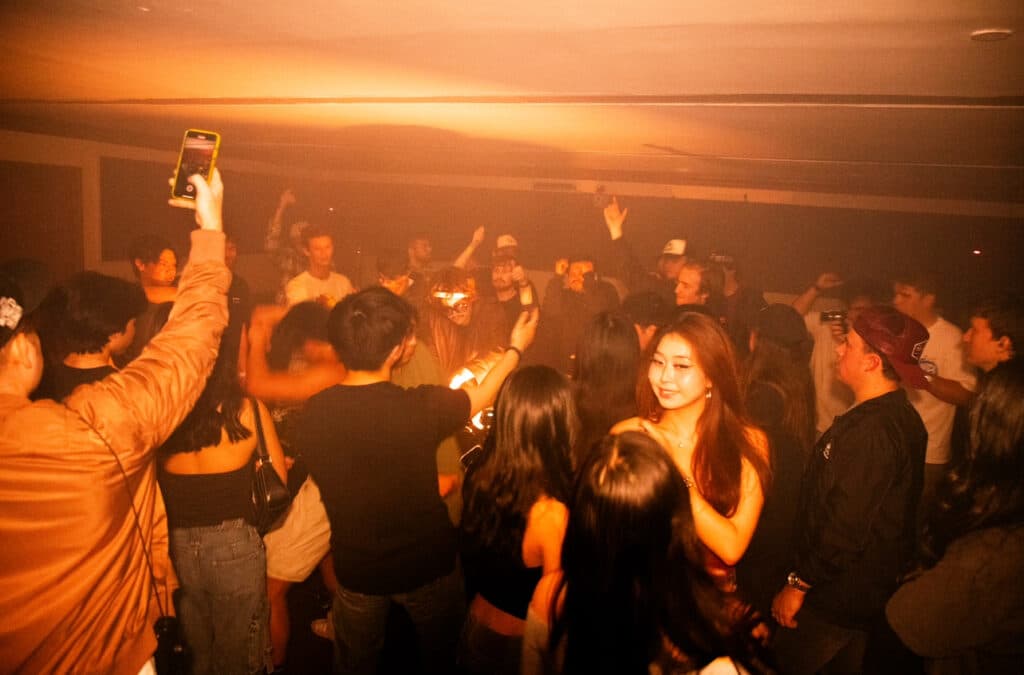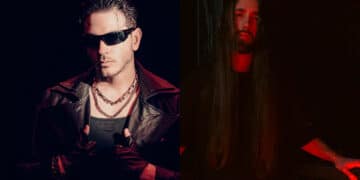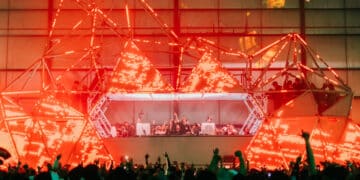Joseph Nguyen founded a University of Southern California student organization called House & Techno at USC. Little did he know where that journey would lead him.
“I’m blessed that in high school I was around a good group of people who refused to give me Bud Light as my first beer,” Joseph Nguyen told me over video chat when I asked about how he came of age. “My first one was a Lagunitas IPA.”
Today, Joseph finds himself in a similar position to the friends who showed him craft beer. Only in his case, it’s electronic music, and the crowd to whom he introduces it has grown too large for him to remember all of their names.
As the founder, first president, and current advisor of a University of Southern California student organization called House & Techno at USC, Joseph exposes a generation barely scratching the surface of dance culture to its deep cultural value. He partners with brands like Native Instruments and 6AM Group as well as execs from Insomniac and WME to share valuable knowledge through hands-on workshops.
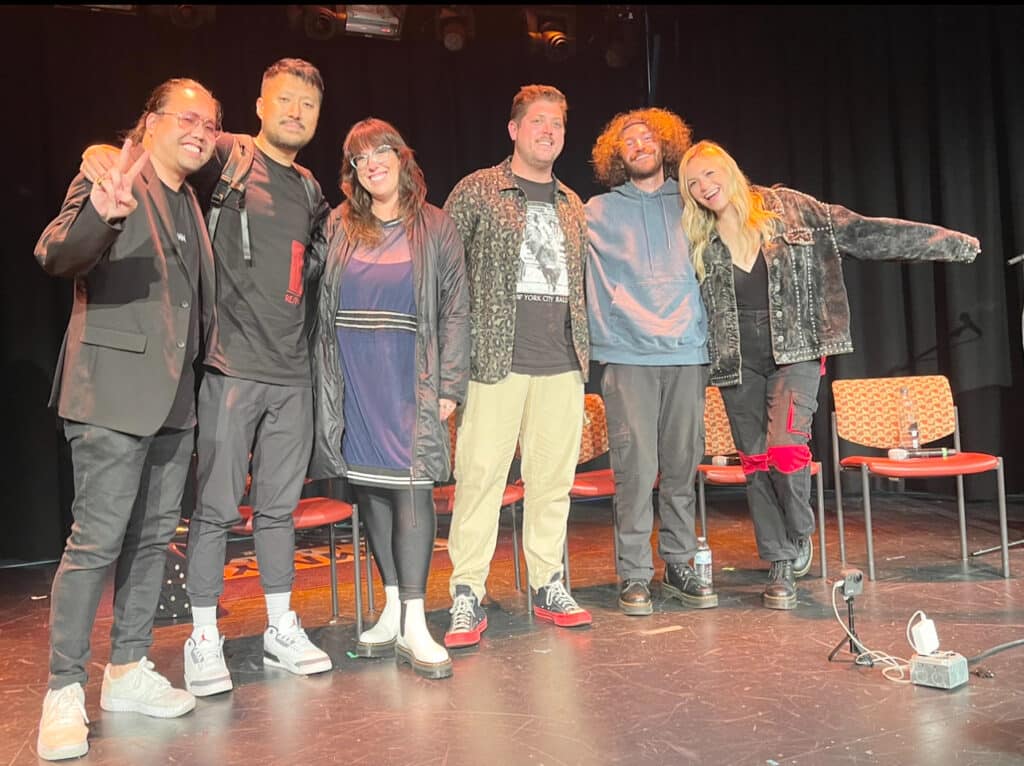
House & Techno at USC has opened as many doors for students as it has Joseph himself. He is now a USC alumnus and CEO of a fintech firm called 3riangle, LLC with an 18th floor office in the Los Angeles Financial District. In a roundabout way, the student organization also led him to pursue independent event promotion and start his own concept called POTION. He has billed respected techno figureheads like Drumcell, Truncate, and Annika Wolfe for late-night gatherings.
USC’s first electronic music industry workshop was presented by POTION and 6AM, and hosted by House & Techno at USC. In attendance was none other than world-famous DJ and producer Claude VonStroke‘s son, Jasper. In an email newsletter, Claude wrote about how his son’s time at the university inspired the two of them to record Jasper’s first-ever single together.
The student organization is also known for its USC Boiler Room parties, which frequently draw upwards of 300 attendees. Being an advisor places Joseph among students heading toward graduation and post-graduation employment, which gives him a sixth sense for scouting promising talent.
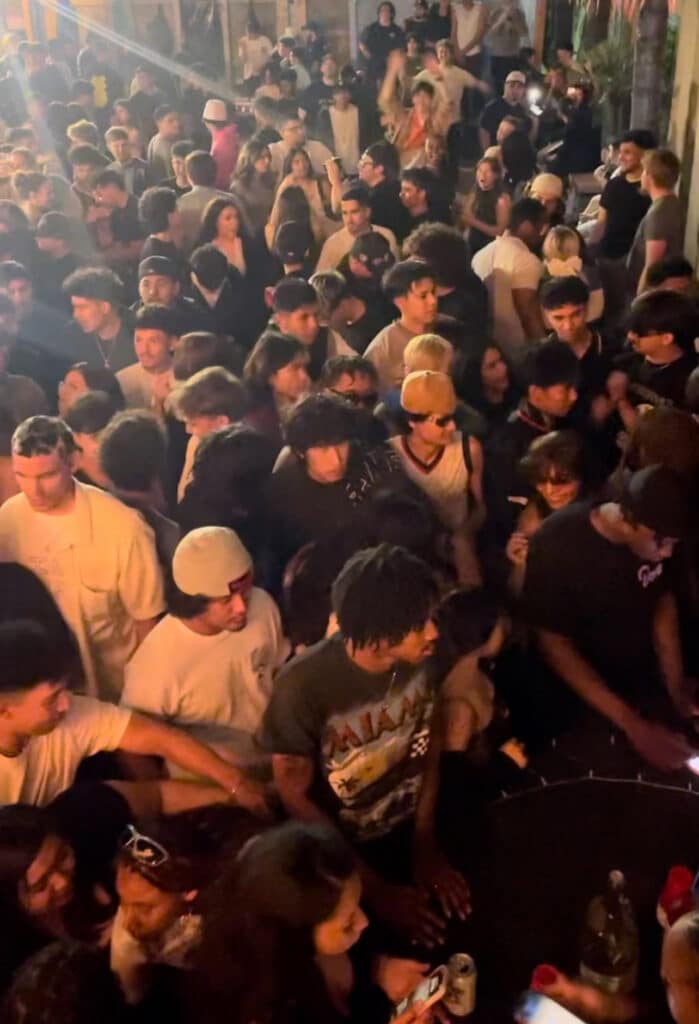
Joseph Nguyen was born in Fountain Valley and raised in an area of Anaheim known as Little Arabia, where he was exposed to a great deal of cultural diversity from an early age. To this he attributes his unique ability to connect with people from all walks of life.
Joseph also breaks from the stereotype of the USC student who comes from a wealthy family. “I made it on my own merits,” he reminisced. “My parents weren’t rich. We didn’t have everything. I never went hungry, but I certainly didn’t have cable television or every model of PlayStation growing up.”
The same friends who gave Joseph his first beer also took him to his first massive music festivals such as Beyond Wonderland, EDC Las Vegas, Coachella, and CRSSD. As with many who find a great deal of meaning in raving, he slowly but surely began to gravitate toward more intimate warehouse parties.
The curators of these events, he found, paid more direct homage to the house and techno close to dance culture’s origins. The two styles respectively came from the Black communities of Chicago and Detroit, inspiring innumerable crossbreeds and iterations in dancefloors across the globe over the past four decades.
Joseph got his first taste of this refined approach to dance music at a warehouse party headlined by Spanish duo Audiofly, feeling the freedom he first experienced at raves magnified tenfold. It was when he started going to events organized by outfits like Compound and Drumcell and Truncate’s Observe that he “got really hooked” and “met the most exceptional people of [his] life.”
Parallel to all of this, Joseph was studying for a Master of Management in Library and Information Science degree at the Marshall School of Business. He specialized in library management, regulation compliance, risk threshold, finance, and partnerships in addition to serving on the Placentia Library District and La Palma Library boards of directors.
During this time, Joseph spent a seven-year stint working as a consultant for the New Blues Festival and Long Beach Blues Society, where he gained experience in non-profit organizations and fundraising. Among other things, he helped deliver blues music to schools, seniors, veterans, and the Miller Children’s Hospital. He also worked with GRAMMY Awards‘ in-house blues artists, Tito Jackson of the Jackson 5, and Harold Brown of War. In 2019, Long Beach Blues Society won FestForums‘ Best North American Music Festival award.
Joseph ran for president of the student chapter of the American Library Association. While he didn’t win the election, his first taste of public service in higher education led him to refocus his efforts toward a different endeavor.
By the suggestion of his friend, Jewel, he decided to start his own student organization with support from Dr. Marion Philadelphia, one of his professors who endorsed his earlier ideas to create the workshops around the house and techno space. She recognized his leadership abilities and his passion, reassuring him he could pull off such an endeavor. Thus, House & Techno at USC was born.
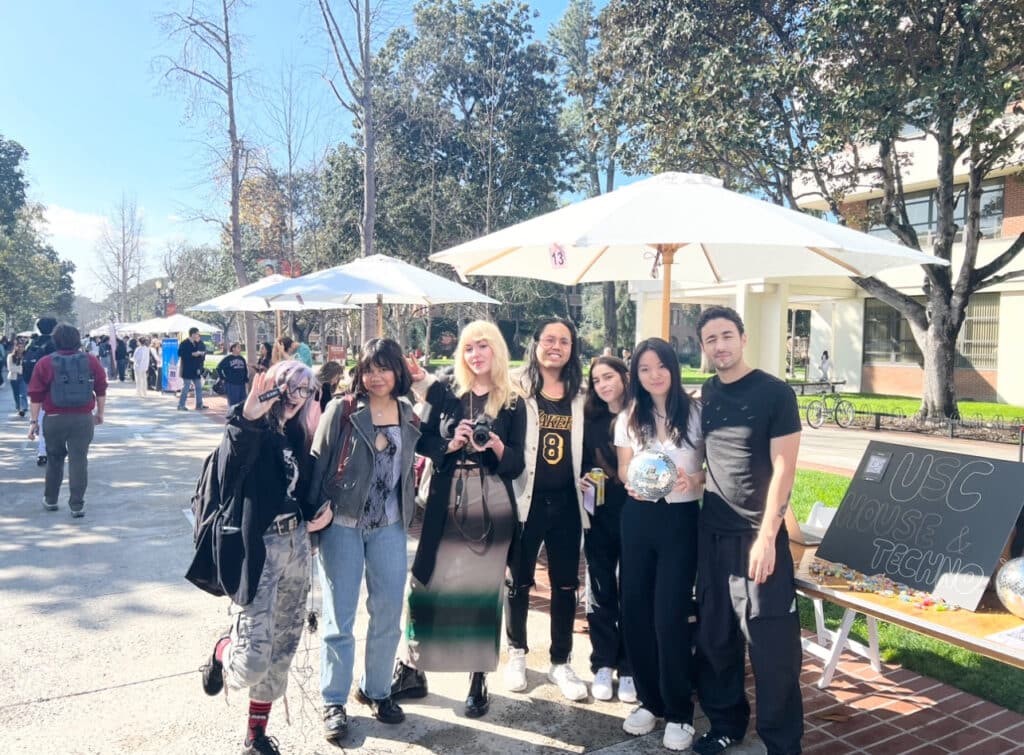
Joseph later got connected to 6AM Group Founder and CEO Jia Wang during a Clubhouse discussion over the pandemic. Then, when nightlife resumed in 2021, the two got reacquainted at 6AM’s RE/FORM gathering while losing their minds to Drumcell’s hypnotic rhythms.
Jia saw value in what Joseph was doing and played an instrumental role in helping put together House & Techno at USC’s workshops. To this day, he remains one of the most frequent hosts, and he isn’t alone. Even professionals from non-dance-music-exclusive companies like Live Nation and William Morris Endeavor have taken the opportunity to impart their expertise upon budding industry professionals. Ditto for artists like Jackie Hollander, Justin Jay, and the latter artist’s manager — all USC alumni.
But it was Joseph’s friendship with Jia that grew beyond House & Techno at USC and led the two to collaborate more closely. Jia had inroads with some of SoCal’s most venerated techno artists. He offered these connections — but the event promotion itself was up to Joseph.
“I had no intentions of becoming a promoter, but I wouldn’t say he pushed me to to it,” recalled Joseph. “He just opened the doors and I put my foot forward. He never told me ‘Hey, you need to throw parties,’ or anything like that. I just had this contract, and that meant I needed to throw a party. He wasn’t putting 6AM’s name on it or funding it — he was just seeing what I could do.”
POTION’s first party at the Melrose House in Los Angeles was headlined by Drumcell and ended up being chosen by Resident Advisor as an RA Pick — a promising start for an underground event brand. The venue enlisted Joseph to do monthly shows, leading him to learn the ins and outs of promoter life.
By the time he teamed with local outfit TechnoFamLA on a Drumcell and Truncate double header, it was clear he had developed a successful formula. Not only did the event draw a huge crowd, but it significantly increased his co-promoter’s fan base.

As his pursuits have taken him in such new and exciting directions, there are moments in which Joseph’s level of involvement in House & Techno at USC wears on him. POTION is not only the name of his event brand, but also his alias for recorded music — one whose edit of “How Do You U Want It” by Tupac Shakur garnered support from Tonal Theory, who played it when they opened for Sara Landry. Not only that, but Joseph did voice acting for the 2024 film Neighborhood Madness, and he’s executive producing a series that he hopes will get picked up by Netflix. Staying involved with college life on top of all of this is a tall order.
“I would love to see the students take it into their own hands and start throwing parties independently,” he said. “I’d still support in any way, lend them our QSC speakers, whatever — but it would be cool to see them pull that off on their own so gain more professional experience and I can focus my own energy on the workshops.”
But it’s worth remaining involved to the public servant in Joseph, to the same part of him that gained fulfillment from his work in the library. Societies abroad that assign greater value to the arts recognize dance music as a cultural asset, enacting policies and implementing initiatives to preserve it. Especially in SoCal, the global entertainment capital where culture is all too often distilled down to a commodity to be bought and sold, people in Joseph’s position are unique and necessary.
House & Techno at USC is working on bringing back workshops for spring 2025, and the executive team plans to acquire a house near campus the following fall. This will provide members with affordable housing (one-third of USC students experience housing insecurity), a space to operate and host events, and firmly establish House & Techno at USC’s legacy at the university.
And it bears mentioning that to this day, he still refuses to serve subpar refreshments at their parties. “We never have bad beer,” he told me firmly. “We always at least have Pacifico, Modelo, seltzers — decent drinks.”
Perhaps most importantly, Joseph Nguyen’s continued work with USC reminds him to keep a finger on the pulse of the next generation and be mindful of industry trends. After all, as he’s learned, the music industry moves fast enough that you’ll miss what’s happening if you look away.
